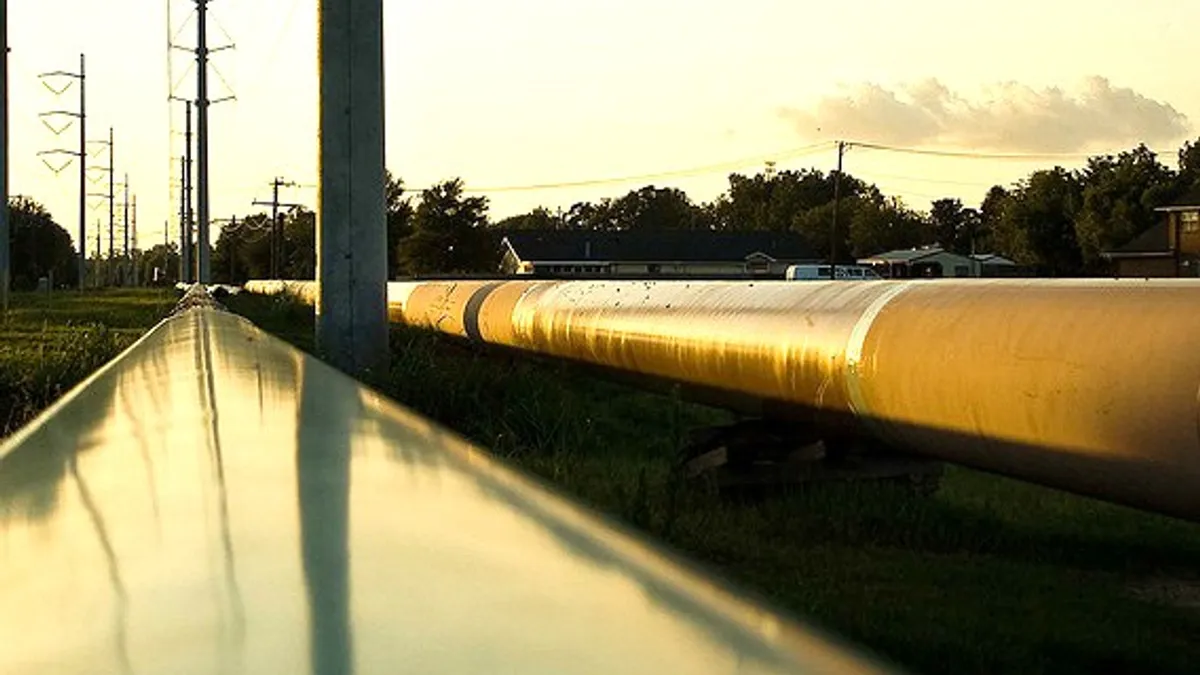Dive Brief:
- The Maine Public Utilities Commission this week unanimously approved a plan to charge electric customers for gas pipeline expansions, rejecting the findings of staff which saw no customer benefit in the proposal.
- The proposal had strong backing from industrial customers, who say more gas capacity is needed in the region to avoid price spikes and shortages.
- Though other states would need to make similar decisions before any development could go forward, Maine's decision could benefit a pair of pipeline proposals being considered for New England.
Dive Insight:
Maine's decision shows regulators believe more capacity is needed, but four other states will still need to make a similar determination in order for one or both of a pair of pipeline projects to move forward.
Two commissioners indicated they wanted to enter talks with Spectra Energy and its Access Northeast project. One commissioner favored a proposal by Portland Natural Gas Transmission System. But with Rhode Island, New Hampshire, Connecticut and Massachusetts still yet to weigh in, the projects are a long way from fruition.
"There are so many more things that need to happen before a shovel gets turned or more gas begins to flow, and most of those things are outside of Maine's control," Maine Public Advocate Tim Schneider told the Bangor Daily News.
In June, staff of the PUC issued a recommendation casting doubt on possible customer benefits of investing in pipe expansion. A 2014 preliminary assessment found charging customers $75 million annually for pipeline development was likely not enough investment, and the recent report doubles down on that warning.
“The record in this proceeding does not support a finding that [a pipeline contract] is reasonably likely to provide net benefits for Maine electricity and natural gas consumers under a sufficiently broad spectrum of future scenarios," staff concluded in its most recent analysis.
Strongest support for the pipelines has come from industrial customer, who say boosting pipeline capacity can help the region avoid price spikes when demand rises and temperatures drop.
The Energy Cost Reduction Act, passed by Maine lawmakers in 2013, authorized regulators to allow annual fees on electric ratepayers of up to $75 million a year, to acquire annual capacity of up to 200 MMcf/d.
"Oil and LNG prices have risen and fallen unpredictably for more than 40 years. This is the prudent indicator of future prices in the long term, and using this indicator, there is no question but that an ECRC contract for Maine's load-weighted share of the [Access Northeast] project is a cost-effective insurance policy," according to the Industrial Energy Consumer Group, as reported by Natural Gas Intelligence.














